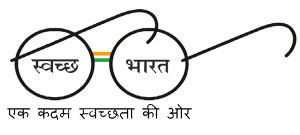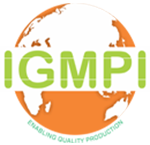


Faculty of Food Safety and Quality
-copy.jpg) 18001031071 (Toll Free), Phone: +91 11 26512850
18001031071 (Toll Free), Phone: +91 11 26512850A-14/B, Qutab Institutional Area, New Delhi – 110067
Certificate in Sensory Analysis in Quality Control

Sensory analysis (or sensory evaluation) is a scientific discipline that applies principles of experimental design and statistical analysis to the use of human senses (sight, smell, taste, touch and hearing) for the purposes of evaluating consumer products. The discipline of sensory analysis requires the use of a panel of human evaluators, wherein test results are recorded based on their responses to the products under test. Statistical analysis is then employed to generate inferences and insights regarding the product.
The sensory sciences are central to research as well as studies in product development or modification, quality control and quality assurance. The effect of foods on our senses is neither simple nor totally understood. The complexity of the stimulus of a food product on any one of our senses is affected by a vast number of factors, including: nature and presentation of the specific food matrix, the age, gender, background, sensory sensitivity of the consumer, even the conditions under which the test is carried out. Despite these limitations, the area of sensory evaluation is used to establish the credibility of a potential new product or the effectiveness of a modification to a new product.
In order to develop understanding and application of sensory science, FFSQ, IGMPI has designed this comprehensive Sensory Analysis in Quality control Programme. This is undertaken through an examination of the practical and theoretical aspects of sensory evaluation.
The aim of the programme is to introduce the basic principles involved in using sensory evaluation effectively in the workplace .The programme will provide individuals with key knowledge of which can be applied directly in maintaining and improving the quality attributes of existing products, and also in developing new products.
Who Should Attend?
Student aspiring to work in the field of sensory science
All involved in implementing and maintaining product quality systems.
Quality Control and Quality Assurance personnel
New Product Development personnel
Industry professionals who conduct consumer preference/acceptance tests
Lab technicians and managers
Marketing managers and research support staff
Programme Focus on
1: Introduction to Sensory Evaluation – The role of sensory evaluation in the food industry; The five human senses; Test individual sensitivities to odour and taste
2: Holistic approaches to understand colour, flavor, texture profiles of food products: Fruits/ vegetables/ confectionary/ baked goods
3: Sensory Test Methods–Steps to conducting a sensory study; Discrimination Tests; Descriptive Analysis Tests; Consumer Tests
4: Sensory Testing — Taste Panels; Control of test room, samples and panellists; Recruitment screening and training of panel members for descriptive analysis; Statistical analysis of results from taste panels
5: Sensory Testing– Focus Groups; Questionnaire Design; Focus Group facilitation; Analysis of results from focus groups
6: Food flavors and taints and off flavors
7: Application of Sensory Evaluation-New product development; Quality Control; Product specifications
Eligibility
Any graduation/ B.tech/ B.Sc. in Microbiology/ Life Sciences/ Botany/ Zoology/ Food Science/ Food Technology/ BE/ B.Pharma/ MBBS/ BDS/ BHMS/ BUMS/ BAMS or any other discipline. Diploma holders are eligible for our Executive Diploma, Industry Certificate, and Certificate Programmes.
Programme Duration
The duration of the training is 5 days.
Registration
The registration dates for this programme run by the Institute are updated timely on the webpage. Effective Online learning tools incorporated into the design of the webpage make the programme lectures and online live classes easily accessible. This gives a huge window of self-regulated and self-paced performance to the participants.
Programme Deliverables
The accompanying training is appropriately aligned with the current Industry’s expectations.
- – Interactive or online live sessions on all key areas of the programme giving all flexibility to the participants.
- – All the efforts are made by IGMPI faculty members to make the entire programme modules easily understandable.
- – Assessment and evaluation for all the programme modules in order to enhance the levels of competencies and skills of the participants leading towards the objective of application in the job.
- – At the end of each programme modules, the trainers shall obtain feedback from the participants using specially designed questionnaires.
- – All learning and training delivery initiatives shall be conducted in English.
Assessment & Certification
Online assessment will be conducted at the end of the programme and after successful completion; the participants will be awarded Certificate in Sensory Analysis in Quality Control in Food by Faculty of Food Safety and Quality, IGMPI.
Placement Assistance & Corporate Relations
The Institute has partnered with many organizations for providing with placement assistance to its participants. The robust placement cell comprises of senior level Human Resources professionals and Talent Acquisition experts which maintains close links with business and industry. We are engaged in promoting the employability of our participants by maintaining good rapport and relation with HR cell and recruiting managers of leading Food and Agriculture companies across the globe. The efforts of our placement cell also include helping with professional resume writing, interview skills & conducting mock interviews etc.
In recent Months the Institute has witnessed more and more participation from professionals working global foods giants like Britannia Industries Ltd., Hindustan Unilever Ltd., Kohinoor Foods Ltd., LT Foods Ltd., McCain Foods India Pvt. Ltd., Mondelez India Foods Pvt. Ltd., MTR Foods Pvt. Ltd., Nestle India Ltd., Parle Agro Pvt. Ltd., Venkys India Ltd., KRBL Limited, Tyson Foods, PepsiCo India, Amul, Mother Dairy, Vadilal, PepsiCo, Kwality Dairy India Limited, Heitage Food Limited, etc.
Future Career Prospects
Faculty of Food Safety and Quality, IGMPI has designed the digital marketing professional programme targeted to cater to the food industry’s need for trained online marketing professionals. The information, guidance, practical training and programme completion certificate will provide the participant with not simply one but many opportunities in the industry. On the successful completion of this programme, you can explore a wide range of career opportunities in the food industry as brand managers, online media strategists, food marketing managers as well as food content marketing specialists.
How to apply | View all IGMPI food programmes
For further enquiries, write to or call us on:info@igmpi.ac.in / 18001031071 (Toll Free), Phone: +91 11 26512850
Food | Pharmaceuticals | Clinical Research | Healthcare | Medical Coding | Medical Device | Nanotechnology | IPR
Placement testimonials: Our alumni are working with Fortune 500 and global Pharmaceutical, Food and healthcare giants like
